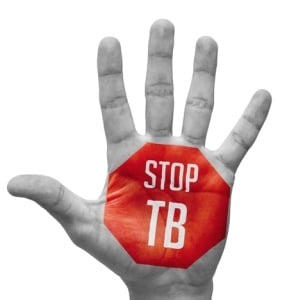
According to the World Health Organisation, at “1 per 100 population”, South Africa has one of the highest TB incidence rates in the world. South Africa also contributes about 17% of the global burden of reported Multi-drug Resistant Tuberculosis (MDR-TB).
One of the most common signs of TB is coughing, so you may be excused for wondering if the person with the chronic cough next to you in the taxi or bus has TB, and if you need to worry about catching it.
Open those windows
World TB Day (WTBD) is commemorated annually on 24 March and as part of this the Minister of Health in the Western Cape, Nomafrench Mbombo and Minister for Transport and Public Works, Donald Grant, launched the Open (the) Windows Campaign.
Read: How does TB spread?
Mbombo said the launch was specifically designed to take the message of preventing the spread of TB directly to people who are public transport users.
TB is an infectious disease that is caused by a germ that attacks and damages the lungs. It can be easily passed to others and when an infected person coughs, sneezes or spits saliva onto the ground, the germs are spread into the surrounding air. If you inhale that air, you can breathe in the germs and get infected.
Because TB is an airborne disease, making people aware that they need to open windows in taxis, buses and trains to let in fresh air is crucial.
A weakened immune system
TB has increased substantially since the 1980s, mainly due to HIV/Aids. HIV suppresses immunity, which makes it easier for the TB bacteria to gain a foothold. Basically, anything that weakens your immune system can make you more susceptible to TB.
Read: HIV and the immune system
In the meantime some TB bacteria have become resistant to antibiotics, which makes it a lot more difficult to treat the disease. This is called Multi drug-resistant tuberculosis (MDR-TB).
According to Mayo Clinic, even though your body may harbour TB bacteria, your immune system is usually strong enough to prevent you from getting sick and a distinction is made between latent TB and active TB.
- If you have latent TB you are infected, but the bacteria are inactive and there are no symptoms. Latent TB isn’t contagious, but can turn into active TB. Worldwide there are about 2 billion people with latent TB.
- If you have active TB, you show physical symptoms of the disease and are contagious. You may become ill soon after infection or it may only happen at a later stage.
The symptoms of active TB include the following:
- A cough that lasts for more than three weeks
- Coughing up blood
- Pain in the chest
- Sudden weight loss
- Weakness and fatigue
- Chills, fever and night sweats
- Lack of appetite
Note that these are only some of the symptoms and that TB can also occur outside your lungs, giving rise to apparently unrelated symptoms. If you suspect that you may have TB, have yourself tested as soon as possible. A chest X-ray or a sputum sample will indicate if you have TB disease.
Read more:
Khayelitsha clinic leads the way for new TB drug
Image: Stop TB from Shutterstock




 Publications
Publications
 Partners
Partners















